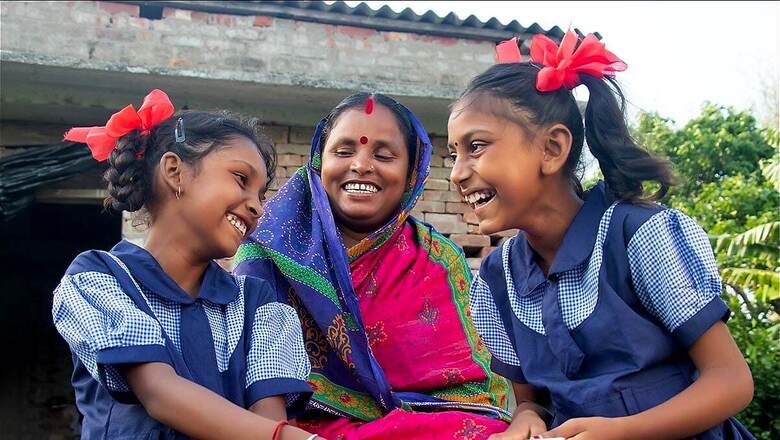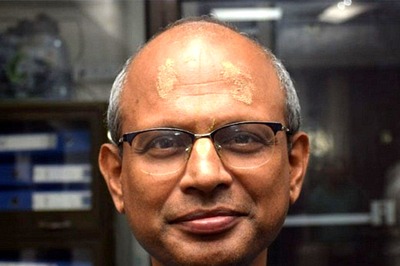
views
When we think about the challenges working women face, the women we imagine are usually office going, educated, and well-heeled. While that is one end of the privilege spectrum, and they have their specific challenges in balancing work and family life, on the opposite end of that spectrum lie the uneducated, unskilled, poor working women who make up nearly 50% of our workforce in sanitation work.
Like all women, these women too, work double shifts: a whole day at work, and then all the responsibilities of home, childcare and elder care. What sharpens their challenges is the lack of support. These women have a near zero safety net – they work in the unorganised sector where they have zero job security, no insurance, and their wages can change without notice. They face the same challenges to independence and mobility that patriarchy places on all women, but in their case, these are doubled up with societal disdain for the work they do. Like all women, they find themselves at the end of gender discrimination, but that too, is compounded by caste based discrimination, since many of them belong to marginalised communities.
Moreover, sanitation jobs are physically demanding, and often involve very hazardous conditions, where these women work without basic protections like gloves and masks. Their pay is dismally low, and as this is considered unskilled, ‘dirty’ work, there are no prospects for growth or improvement. In the face of all this, how do these women manage their roles as wife, mother and caregiver at home?
The Dual Role: Workers and Caregivers
In several parts and pockets of India, a woman’s first responsibility is still considered her home. Domestic work, childcare, and taking care of her elders are considered her primary duties by their families and communities. If she wants to work, she has to find ways of fulfilling her primary duties, before any that her work entails. To this end, most women sanitation workers are up before the sun to wrap up all their household chores before setting out to a full day of physically exhausting work. They then return home late in the evening to take care of their children and elderly relatives.
If this wasn’t enough, they also face harassment or violence from their husbands, who may not approve of their work or demand a share of their income. Some women sanitation workers also face social ostracism and isolation from their neighbours and relatives, who consider them impure and untouchable because of their work.
The work itself takes its toll. There are many risks to sanitation work, particularly when done without protective gear. There are a number of diseases and health hazards these women are exposed to, and are fearful of bringing home to their families.
However, as our sanitation consciousness grows, so does our awareness of the challenges these women face. While there are several stories of women who are toiling this way, there are also stories of women who have found a way to lift themselves and their sisters out of these situations, and create lasting change in their communities.
Inspiring Examples of Change
Rani Devi
Rani Devi, a sanitation worker in Patna, Bihar, faced the daunting challenge of supporting her family after her husband left her. She connected with UNFPA, received training in machine-based sewer and drainage cleaning, and formed a cooperative team. Today, she manages her family’s needs while leading a team that provides essential sanitation services to Patna.
Sadhna
Sadhna was only 26 when she lost her husband to alcoholism, and had to take up cleaning community toilets to make ends meet, earning a meagre income of ₹4,500 per month. Determined to create a better life for herself and her children, she took up training at Harpic World Toilet College (HWTC), following which, she secured a position as a housekeeper at United CIIGMA Hospital in Aurangabad. With a stable income and improved salary, she transferred her children to a better school, opened a savings account for their future, and improved her health through safety gear and regular medical check-ups.
Varsha
Varsha too, found herself the family’s sole breadwinner upon her husband’s tragic death. She sought training at HWTC, which led to a stable job at Hegdewar Hospital, Aurangabad. With a permanent job, Varsha was able to fulfill her daughter’s dream of becoming an engineer. Education provided her family with financial security and her daughter with a promising future.
Education as a lever for growth
What’s common in Rani Devi, Sadhna and Varsha’s stories is their commitment to their families’ futures, and the fact that they sought training. Education lifts everyone. At the very least, education helps us see possibilities, and equips us to find ways out of situations that otherwise trap us.
As India’s leading brand in the lavatory care space, Harpic has a keen understanding of the problems that sanitation workers face. Harpic World Toilet College (HWTC) was established with the stated objective of improving the quality of life of sanitation workers through their rehabilitation by linking them with dignified livelihood options. Workers trained by the college are provided placement with various organisations. Following the successful proof of concept in Rishikesh, HWTCs have opened in Maharashtra, Aurangabad, in partnership with Harpic, Jagran Pehel and Maharashtra Government.
When these women graduate from HWTC, they emerge as certified sanitation professionals. They understand the risks their work poses to their health and that of their families, and have the soft skills needed to articulate why they need protective gear and tools.
As the HWTC also undertakes placements, most graduates emerge with jobs in the organised sector – with better pay, a provident fund, and insurance. They now have job security, and that security gives them a firmer footing in the world. Between better pay and insurance, they have the confidence to both save for a rainy day, and spend on the things they need to improve their circumstances.
To say it is a life changing experience is an understatement.
Harpic isn’t stopping there. Joining hands with News18 to create Mission Swachhta aur Paani, a movement that champions the cause of inclusive sanitation, equality for all genders, abilities, castes and classes and the strong belief that clean toilets are a shared responsibility, Harpic is also creating platforms where the right conversations can happen.
What we talk about matters. As awareness and understanding grows, so do solutions. Join us here to learn how you can be a part of the movement towards a more equitable, Swachh and Swasth Bharat.

















Comments
0 comment